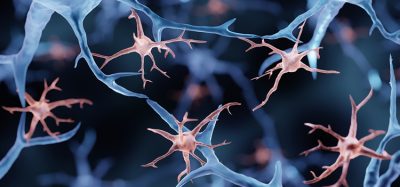Researchers reveal potential cause of COVID-19 aftereffect in children
Posted: 13 August 2021 | Anna Begley (Drug Target Review) | No comments yet
Scientists have uncovered an important clue to the COVID-19-related multisystem inflammatory syndrome in children (MIS-C).


Researchers at the Mount Sinai School of Medicine, US, have revealed an important clue to the serious aftereffect of COVID-19 in children, known as multisystem inflammatory syndrome in children (MIS-C). They found that RNA sequencing of blood samples led to the discovery that specific infection-fighting cells of the immune system are downregulated in children with MIS-C and that this is associated with a sustained inflammatory response, a hallmark of infection with SARS-CoV-2.
MIS-C is typically characterised by fever, pain and inflammation of multiple organs including the heart, lungs, kidneys, skin, eyes or gastrointestinal tract. More than 2,600 cases of MIS-C have been reported in the US since the COVID-19 pandemic began.
While an autoimmune condition has been suggested as an underlying cause, specific genes, pathways and cell types have remained unknown. According to the researchers, this study is a significant step in providing new exploratory pathways involving complex networks and subnetworks of genes they constructed from paediatric cases of MIS-C and COVID-19 from the Mount Sinai COVID-19 Biobank.
Natural killer (NK) cells and CD8+ T cells are two immune cells that were shown be suppressed within this gene network. Previously, research has shown that when CD8+ T cells are persistently exposed to pathogens, they enter a state of “exhaustion”, resulting in a loss of their effectiveness and ability to proliferate. The researchers specifically pointed to the CD8+ T cells being in this exhausted state, thus potentially weakening the inflammatory immune response. An increase in NK cells is also associated with exhausted CD8+ T cells.
“Our study implicated T cell exhaustion in MIS-C patients as one of the potential drivers of this disease, suggesting that an increase in both NK cells and circulating exhausted CD8+ T cells may improve inflammatory disease symptoms,” explained lead co-author Noam Beckmann. “Additionally, we found nine key regulators of this network known to have associations with NK cell and exhausted CD8+ T cell functionality.” Beckmann also added that one of those regulators, TBX21, is a promising therapeutic target for this COVID-19 aftereffect because it serves as a master co-ordinator of the transition of CD8+ T cells from effective to exhausted.
The team’s findings were published in Nature Communications.
Related topics
Disease Research, Drug Targets, Gene Testing, Genomics, Immunology, Molecular Targets, T cells, Targets
Related conditions
Multisystem Inflammatory Syndrome in Children (MIS-C)
Related organisations
Icahn School of Medicine at Mount Sinai Hospital
Related people
Noam Beckmann








